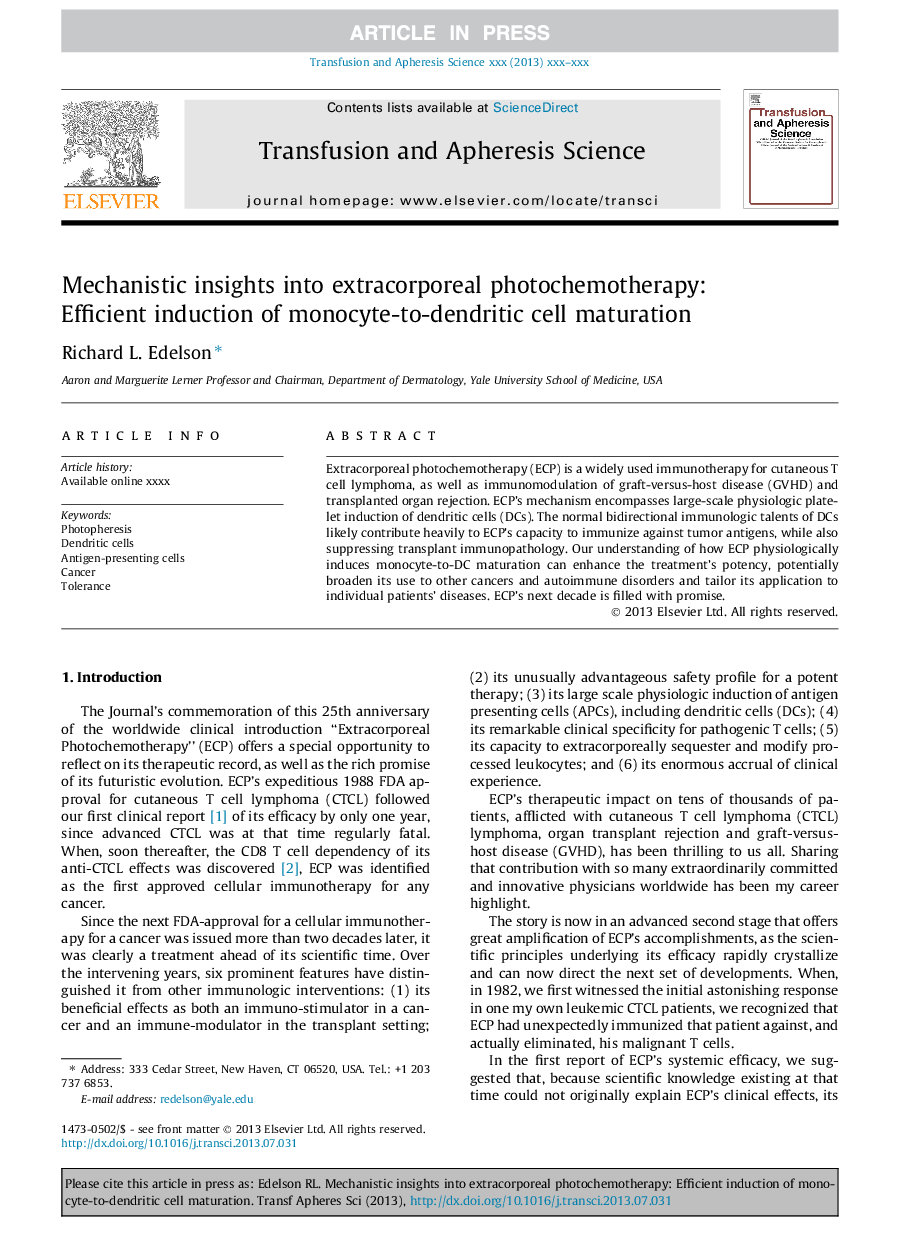| Article ID | Journal | Published Year | Pages | File Type |
|---|---|---|---|---|
| 6114101 | Transfusion and Apheresis Science | 2014 | 8 Pages |
Abstract
Extracorporeal photochemotherapy (ECP) is a widely used immunotherapy for cutaneous T cell lymphoma, as well as immunomodulation of graft-versus-host disease (GVHD) and transplanted organ rejection. ECP's mechanism encompasses large-scale physiologic platelet induction of dendritic cells (DCs). The normal bidirectional immunologic talents of DCs likely contribute heavily to ECP's capacity to immunize against tumor antigens, while also suppressing transplant immunopathology. Our understanding of how ECP physiologically induces monocyte-to-DC maturation can enhance the treatment's potency, potentially broaden its use to other cancers and autoimmune disorders and tailor its application to individual patients' diseases. ECP's next decade is filled with promise.
Related Topics
Health Sciences
Medicine and Dentistry
Hematology
Authors
Richard L. Edelson,
